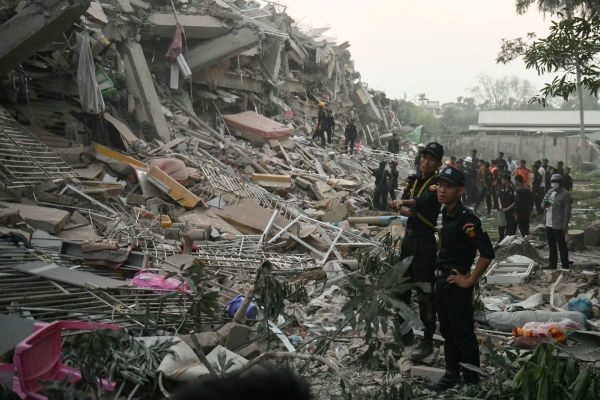Iraqi Christians Upset Gov't Abandoned Them to ISIS, Catholic Priest Says

A Catholic priest described his shock at the conditions Iraqi Christian refugees face, saying that they were left helpless and angry at government soldiers who abandoned them to ISIS extremists after the militants began their attacks.
"The people are angry because the government just gave up on them. They told us that, in Mosul, where there had normally been a presence of 60,000 soldiers, after the onslaught of ISIS, in only a matter of hours, these soldiers abandoned them, laying down their weapons," said Fr Rami Wakim, the secretary to Melkite Catholic Patriarch Gregoire III Laham, according to The Catholic Herald on Monday.
Last week, the priest accompanied a delegation of Catholic and Orthodox patriarchs to Erbil, the capital of the Kurdish region of the country, where scores of persecuted minorities, including many Christians, are fleeing to.
The militant group, which also calls itself the Islamic State, has captured large territories in Iraq and Syria and remains locked in wars with the central governments. The terror group has targeted minorities and captured significant Christian cities like Mosul, giving followers of Christ the option to convert to Islam, pay a tax, or be killed.

Wakim said that the delegation encountered scattered mattresses around church altars and entire churches filled well beyond capacity with refugees, forcing many to spread out into church parking lots and the surrounding streets.
Many of the refugees swarmed around the patriarchs when they came to visit them, asking for blessings and prayers for the sick.
"It was very touching. The (Melkite) patriarch cried many times when he saw these people. He was hugging and kissing them as he cried. Of course, I cried, too. I think all the patriarchs cried because they felt helpless, there was nothing they could do at that very moment," Wakim said.
The priest, who had been ordained only days earlier in Damascus, said that the situation in Erbil made him realize just how difficult the priestly mission is during such a heavy time.
"People look up to priests and bishops as the only solution, the only help they can get at a time where — of course we need to pray with them — but at this time prayer alone doesn't seem enough and actions are required," Wakim added.

The U.N. recently declared the highest level of humanitarian emergency in Iraq, seeking to urgently scale up relief efforts.
The American government has launched airstrikes against ISIS targets in Iraq and helped with providing arms to the central government and Kurdistan, but has said that it will not be sending ground troops into the country.
Much of the work to help refugees has fallen on non-government organizations and missionary groups, which have also been reporting about the harsh living conditions at refugee camps and the needs of the people.
Kathryn Taetzsch, World Vision's senior emergency response leader in Iraq, told The Christian Post in an interview last week from Erbil:
"Immediate basic needs are food, water and shelter. Families are temporarily living in local schools, unfinished buildings, churches and other community centers. Some are living out in the open.
"There are often more than 20 to 30 family members in small spaces like classrooms, and, given the very hot summer temperatures (more than 100 degrees Fahrenheit most days), plus overcrowded accommodations and poor sanitation, this is a very serious challenge for humanitarian organizations," Taetzsch told CP.
"Some communities have told aid workers that they cannot cope with the influx of arriving families and may need to send them elsewhere."
Lebanese Cardinal Bechara Rai, patriarch of the Maronite Catholics, said that last week's trip by the delegation of patriarchs was meant to show solidarity with the refugees.
"We want all the Christians, Muslims, Yezidis, Sunnis, Shiites and Kurds to stay in Iraq and not to leave because this is our homeland, this is our culture, and civilization and we do not want to part with it," Rai said, according to Catholic News Service.
"The ones who want to help us must work to stop injustice, help us end injustice and help our people regain their rights. This is what we want from the ones who want to help."






















